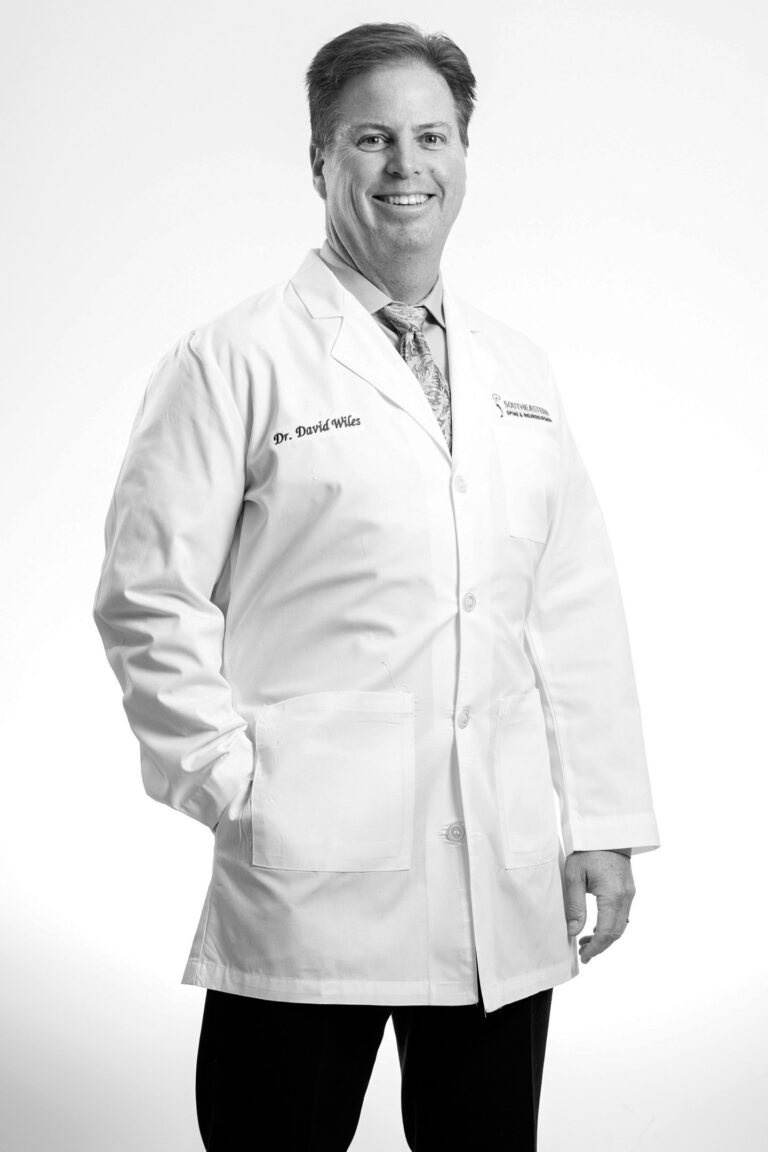Southeastern Spine & Neurosurgery
Rising to
the Challenge
A recent transplant to the Chattanooga area, Dr. David A. Wiles’ reputation as a leading neurosurgeon preceded him. Prior to the move, Dr. Wiles spent nearly 22 years in Johnson City, Tennessee, at a level I trauma and tertiary care teaching hospital, where he was director of neuroscience. He trained under some of the world’s best spine surgeons, served on countless committees, and developed numerous spinal surgical techniques and devices. While his accolades keep growing, Dr. Wiles shares that his motivation stems from a genuine care for his patients. “The most meaningful accolades come from the patients or family members letting me know that I have helped,” he tells. “Neurosurgery provides both an intellectual and physical challenge that results in changing people’s lives. I love Chattanooga and look forward to serving the people here.”
My strengths are confidence in my abilities and the desire to always improve."
My Credentials
Medical Degree:
Tulane University School of Medicine – New Orleans, LA
Certifications:
American Board of Neurological Surgery
My Specialties
Minimally Invasive Spine Surgery
Artificial Disc Replacement Surgery
Brain and Spinal Tumor Surgery


1. What sets your practice apart?
Utilization and understanding of new technology through participation in European Spine and Neurosurgery Societies, where those technologies are available years before the United States has access.
2. What do you love most about your profession?
The honor of being trusted with someone’s life. And, the satisfaction from success in treating that patient.
3. What is your philosophy when it comes to the care of your patients?
Accurate diagnosis is my responsibility. Treatment of that diagnosis is a shared, informed decision between the patient and me.
4. What do you see as the most exciting new development for your profession?
Continued research is leading to deeper understanding of how to treat patients effectively and how to evaluate those who fail initial treatment. This research spans everything from development of replacement parts, like artificial discs and spinal joints, to biologic materials to grow or repair tissue.
5. What is one of your happiest professional moments?
At my neurosurgery graduation dinner, the chief of neurosurgery at St. Jude Children’s Hospital, Dr. Robert Sanford, stated that I was the first resident whom he would feel comfortable letting treat his own children.
- 423.693.2175
- 281 North Lyerly Street, Suite 300, Chattanooga, TN 37404
- 9309 Apison Pike, Ooltewah, TN 37363
- southeasternspine.net

